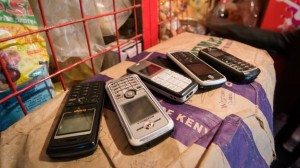
After travelling to Somalia in 1986, Barry Coleman and his wife, Andrea Coleman, decided to create a non-profit social enterprise. The couple was shocked by the country’s indigent, disordered and inefficient health transport system, and by the shortage of medical supplies. As a result, Barry and Andrea mortgaged their home in England to found Riders for Health; a non-profit firm that now uses government funding and private donations to operate.
Over the past 27 years, the Colemans have worked to provide a reliable and sustainable health delivery system that aims to improve access to, and quality of, medical treatment in Africa. In fact, Riders for Health provides its services to 12 million people in the seven countries where it currently operates. Similarly, in Zimbabwe, the social enterprise has decreased deaths attributable to Malaria by 60%, while becoming prominent in Gambia’s inclusive, nation-wide medical coverage.
Clearly, just like the Colemans, social entrepreneurs can be as driven as commercial entrepreneurs; while the latter compete for profit and market share, the former strives for a permanent social transformation. Indeed, Riders for Health has saved thousands of lives and will continue to do so in the future.
Website and Picture: http://www.cnn.com/2013/09/07/opinion/skoll-osberg-social-entrepreneurs/index.html?iref=allsearch
Video about Riders for Health: https://www.youtube.com/watch?v=gq5QrJEHAnM
Ted Talk video by the Colemans: https://www.youtube.com/watch?v=dykaGT4G1yA


